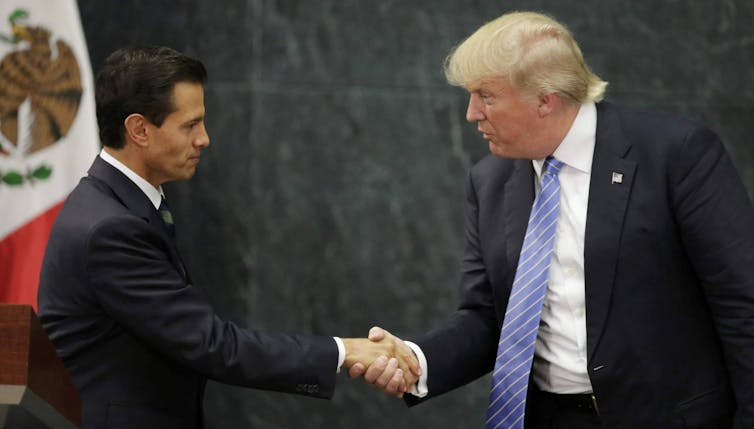There Was That Reached Optimism Again
As any good storyteller knows, people accept a lot of faith in fictional heroes and their ability to vanquish all odds. In fact, without this enthusiastic trust in characters, popular stories such as Star Wars, Cinderella or Slumdog Millionaire just wouldn't work. But what'due south the mechanism backside this powerful belief in others?
When I started thinking almost this, my hunch was that it could be a type of "vicarious optimism" that we experience for other people. This idea clashes with our current understanding of optimism as a self-centered phenomenon: I believe that practiced things will happen to me, not you. But my colleagues and I felt that psychologists may have been missing something. We set up a serial of experiments to test how far reaching optimism really is.
Readers of fiction need to disregard bad news virtually the heroes of the story and trust good news in gild to believe in a happy ending. This is similar to what people practise for themselves. Research has shown that in lodge to remain optimistic about their own future, people dismiss bad news (things might be worse than expected) and readily incorporate good news (things might be amend than expected).
Yet, inquiry likewise tells us that we exercise non only care well-nigh the future outcomes of ourselves, but likewise those of others, even strangers. We besides know that people take the capability to experience vicarious emotions in response to other people's successes and misfortunes. So perchance the feeling of optimism could besides extend to others?
To find out, we started past examining if people show vicarious optimism in learning about the time to come of a friend. Nosotros asked 83 participants to name a friend and so imagine a serial of misfortunes happening to them, such as having their car stolen, getting cancer or missing a flight.
After imagining an consequence happening to their friend, they had to estimate each time how likely they felt it was that this would happen to their friend in real life. Participants might, for case, indicate that they felt that at that place was a 35% chance that their friend would get cancer. We then gave them an evidence-based likelihood of an average person similar to their friend getting cancer. Thereafter, they had another risk to estimate how likely they thought it was.
Now imagine that the average take a chance of getting cancer was 25%. This would exist skillful news, it would hateful that the friend was less likely to get cancer than the participant had idea. What our participants did after receiving good news near their friends' time to come was to drastically lower their likelihood gauge. Still, if they were told that the boilerplate take a chance was, for example, 45% instead – bad news – they did little to suit their original estimate.
This is the signature of the optimistic bias in learning – readily incorporating good news into beliefs, but mostly neglecting bad news. And while nosotros knew that about lxx-lxxx% of people do this for their own futurity, our study, published in Psychological Science, showed that we also accept the chapters to exist vicariously optimistic on the behalf of our friends. Indeed, about 65% of participants showed vicarious optimism for their friend.
Good vs bad people
But this was only one piece to the puzzle. Nosotros know that the more nosotros care nearly another person, the more intensely we experience their emotions. We therefore wanted to know if the extent to which people care well-nigh another person drives vicarious optimism.

To examination this idea, nosotros presented some other group of participants with anonymous descriptions of people and their behaviour. Here nosotros introduced ii fictional individuals – Person X and Person Y. Nosotros told participants that they had each received £20 and had been asked how much they would exist willing to give up to save some other participant from painful electrical shocks. Person X was willing to give up well-nigh all of the money, whereas Person Y didn't want to give upward whatsoever.
All participants then did the vicarious optimism task again – this time estimating how likely it was for Person X and Person Y to experience negative life events. Equally we expected, participants showed potent vicarious optimism for Person X – the nice i – only not for Person Y.
This finding, also published in Psychological Science, is likewise in line with one of the virtually important rules in storytelling: brand people care. Once people intendance about the heroes of the story, they are willing to surrender common sense, ignore the bad news and stay invested in the characters.
Generosity and optimism
The reactions of the more than 1,000 people in total tested in our studies show that humans are able to feel optimism for both friends and strangers – in line with how much they intendance for the person.
But does vicarious optimism have whatever implications in real life? We thought that only like optimism for the self oftentimes provides motivation to do something, vicarious optimism might provide the hope that supports helping. Feeling that in that location is hope for another person's futurity might fuel people's motivation to help them now.
And, indeed, we discovered that people who show vicarious optimism for a stranger were willing to donate well-nigh three times as much money to a charity supporting people similar to that stranger compared to people who were pessimistic nigh the future of that stranger.
It really is good news: vicarious optimism exists and it matters for fiction every bit well equally for real life.
fishbournemoothoung.blogspot.com
Source: https://theconversation.com/how-we-discovered-that-it-is-possible-to-feel-optimism-for-others-91173
0 Response to "There Was That Reached Optimism Again"
Post a Comment